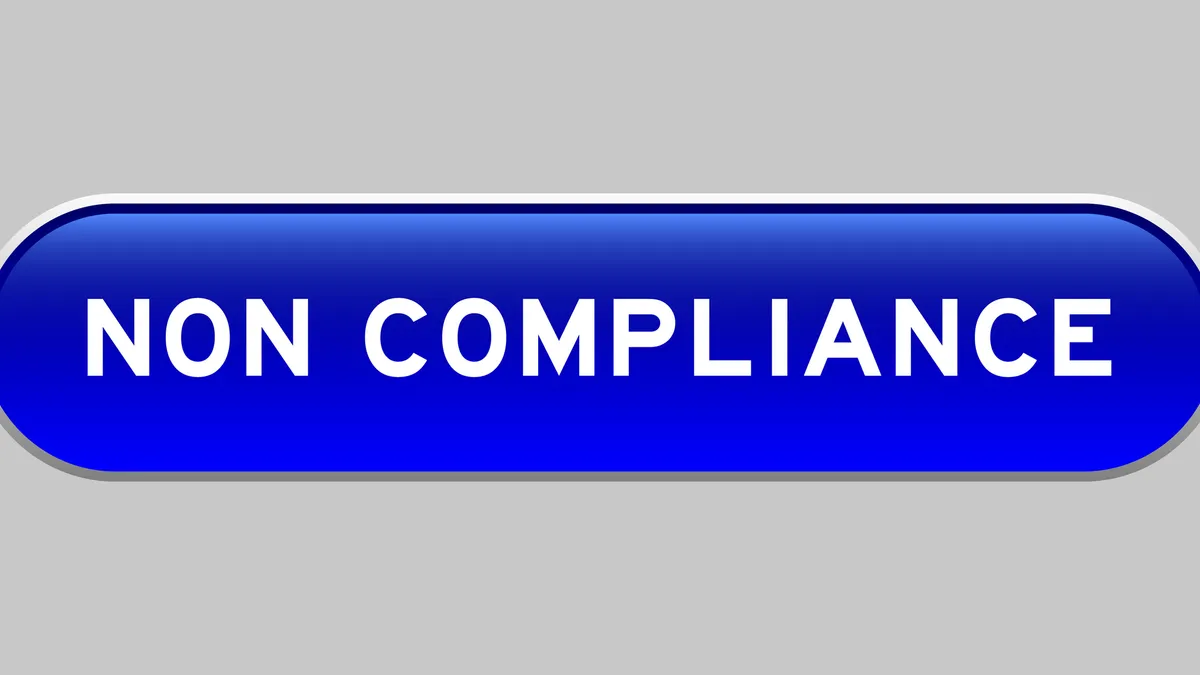Dive Brief:
- More than one in four organizations (26%) say that at least some of their corporate entities have been out of good standing with regulators in the last two years, according to a recent report.
- Additionally, 9% of survey respondents said that a delinquency regarding a corporate entity’s status with regulators has impacted a business transaction, the legal entity management survey from the Association of Corporate Counsel and Deloitte Tax found.
- Respondents' top corporate entity management pain points include having too many competing priorities (62%), a lack of bandwidth (49%) and inconsistent processes (37%). The survey population included 467 organizations across 20 industries in all global regions.
Dive Insight:
ACC and Deloitte’s 2023 legal entity management report said the results indicate that many organizations “lack policies, procedures, and processes to effectively manage their subsidiary governance, putting them at greater risk of non-compliance.”
For example, 25% of organizations have no official policy or process to update company records, including minute books and entity management systems.
Roughly 27% have no process to monitor annual compliance obligations, and 31% have no process to enable effective subsidiary governance in general.
“The lack of robust subsidiary governance programs and procedures is causing some significant disruptions to businesses operating efficiently,” said Blake Garcia, ACC’s senior director of business intelligence, in a press release. “With organizations falling out of good standing with regulators or having business transactions impacted, it will be interesting to see how teams adjust to an increasingly complex regulatory framework across numerous jurisdictions.”
The 2023 report notes that one positive development is that the number of organizations who do not have an annual compliance calendar dropped from 38% in last year’s survey to 30% this year.
Overall, two-thirds of participating companies have official LEM policies, procedures, processes or other controls in place to update company records, as well as monitor and track annual compliance.
Nearly half of all organizations surveyed use Microsoft Excel as their entity management technology (49%), with Diligent coming in second place at 13%. However, of the 38% who use Excel exclusively, just 30% are satisfied with it.
Two-thirds of respondents who exclusively use a formal entity management platform said they are satisfied.
Nearly all respondents (98%) said someone from their legal department is a member of the legal entity management team, and nearly half (48%) said a compliance professional is a member. Members of governance, finance and tax teams also sometimes take part in such duties.

Roughly two-thirds of organizations said their legal entity management teams consist of one to three individuals, with 25% featuring four to 10 team members.
Just 9% of organizations have more than 10 individuals with such responsibilities. Larger companies tend to have much larger teams handling this work, the report said.
The overwhelming majority of organizations (79%) expect to keep legal entity management staffing levels the same in the next year.
Just 14% expect to increase staffing levels, which was down from the 22% who anticipated doing so last year.
“This is likely due to concerns about the economic prospects for 2023 and beyond, with the lower expectations on hiring new staff affecting all types of legal department positions,” the report said.
Those who expect to increase hiring point to the changing regulatory climate, company growth and having more entities to manage.











